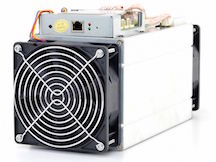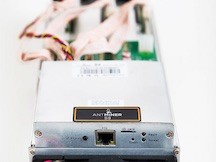A Plan to Scale the World's First 'Sports Blockchain' is Accelerating
A Taiwanese insurance company is building a network of blockchain protocols to help its customers reduce the price they pay for coverage.
The one-stop shop, built by Taipei-based Fubon Life Insurance, is designed to incentivize healthy behavior and reward customers with lower premiums. But while the project is still in its early days, it had its first live test last month.
The first blockchain implementation is Bravelog, a private version of the ethereum blockchain, custom-built to record race and biometric data. It was tested at the Garmin Lava Dapeng Bay Triathlon in Taiwan on 7th January.
Based on the success of the event, Fubon has shared exclusively with Bitcolgate, its plans to scale that blockchain project beyond its current scope.
The head of Fubon’s Taipei FinTech office, Chris Tsai, told CoinDesk:
The inaugural race took place with Fubon's Bravelog blockchain serving as a common protocol on which participants ranging from athletes, equipment providers and event organizers could interact.
In total, 349 people participated in the event, including the blockchain's developer, Alex Liu, CEO of the Amis blockchain consortium.
Liu and the other racers shared their personal data to a blockchain, ranging from race metrics to the individual's pulse, based on biometric measurements provided via Garmin devices.
Behind the design

Billed by Fubon as the "first sports blockchain", the early version of Bravelog was developed by Amis using Microsoft's Azure Platform.
The user interface was built by the Industrial Technology Research Institute of Taiwan (ITRI), a government research group, with nodes that were run by Fubon, Amis, ITRI and the triathlon organizers.
However, Liu envisions future applications where nodes would be run by anyone who needs to access the personal health data, including insurance providers, health service professionals and users themselves.
To give an idea of the scale of the project, Fubon Life generated $1.24bn in profit in 2016, making it the most profitable subsidiary of parent company Fubon Financial. Fubon Life accounted for 64.5% of the parent company's total profits in the same year.
However, Tsai believes he can increase that number by incentivizing healthy behavior. The idea is that customers could voluntarily grant Fubon and others access to their data in exchange for lower premiums.
That in turn would serve the double purpose of making the customer less susceptible to expensive illness and attracting new customers.
"We want to promote a healthy lifestyle," Tsai told CoinDesk.
The Misfit fit
But this service is not new. Already companies like California-based Misfit provide similar incentives, and they're doing so rather successfully.
After signing a deal in 2014 to provide fitness and sleep data to Oscar Insurance Corporation, venture-backed Misfit was acquired by Fossil watches for $260m.
Oscar customers can earn $1 a day, up to a maximum of $240 a year, for wearing the device which provides data – including steps taken, calories burned and quality of sleep – to the insurance provider.
In addition to Garmin, which sponsored the triathlon at which Bravelog launched, competitors also include Fitbit, Withings and more.
The crucial difference between these services and Bravelog, though, is who owns the data, according to Liu.
As part of the event, participants had to create an identity, that if they chose, could go with them to another event with totally different hardware because they own the data.
Liu said:
The sports ecosystem

Bravelog was developed in Fubon's FinTech office in Taipei, which Tsai established last year to explore blockchain and other financial technology applications.
The blockchain project falls between two of the office's core objectives, big data analysis and healthcare.
Tsai believes that, in the future, blockchain also has the potential to help him meet other objectives in digital finance and information security.
Already being developed is a financial services implementation of the blockchain protocol developed by Amis to help Fubon Life’s parent company streamline interbank transfers and loan payments.
This service, in turn, could eventually run alongside the health side of the project, facilitating the sale of tickets to sporting events and other transaction across Fubon's subsidiaries.
To facilitate the interbank work necessary for such an endeavor, Fubon last year became a founding member of the Amis Taiwan blockchain consortium, along with Cathay Financial Holdings, CTBC Bank and others.
While the Bravelog blockchain and the interbank blockchain payments tools are currently separate, Liu tells CoinDesk he’d like to one day see them run on a single blockchain with a universal self-sovereign identity.
Liu concluded:


 The
The




